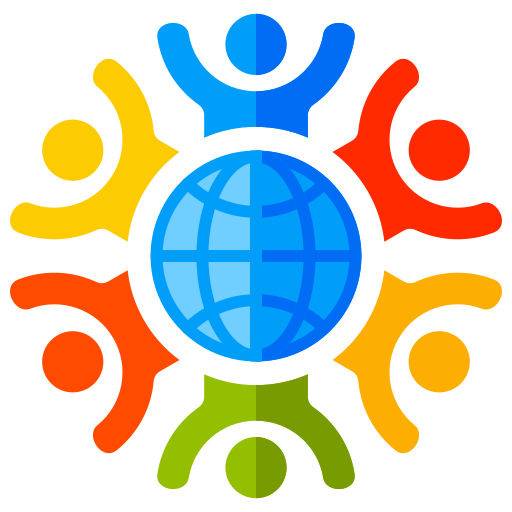Long before the advent of sprawling libraries or the endless scroll of the internet, humanity stored its most profound ideas, fears, and aspirations in a powerful and enduring vessel: the epic poem. These colossal tales of heroes, gods, and monsters are far more than just ancient adventure stories. They are cultural blueprints, windows into the very soul of the civilizations that birthed them. To read an epic is to engage in a conversation across millennia, to discover that the questions that haunted our ancestors are, in many ways, the very same questions that define our lives today.
At their core, epics serve as a mirror, reflecting the values a society held most dear. They tell us not just what people did, but what they believed was worth doing, worth fighting for, and worth dying for. By examining the protagonists of these tales, we unlock a culture’s definition of greatness.
A Blueprint of a Civilization’s Values
Think of the ancient Greeks and their two foundational epics, The Iliad and The Odyssey. In the war-torn plains of Troy, Achilles embodies the relentless pursuit of kleos, or immortal glory. His rage, his pride, and his ultimate choice to die young and famous over a long, forgotten life tell us everything about the Hellenistic warrior ethos. Contrast this with Odysseus, the hero of the long journey home. His defining trait is metis—cunning intelligence. He triumphs not through brute strength alone, but through wit, deception, and a dogged determination to return to his family and kingdom. These two heroes, glory-seeker and wanderer, represent the two poles of the Greek ideal.
Duty, Destiny, and Dharma
Now, journey across the Mediterranean to the nascent Roman Empire with Virgil’s Aeneid. Its hero, Aeneas, is not driven by personal glory in the Greek sense. His defining characteristic is pietas, a solemn sense of duty to his family, his people, and the destiny of Rome itself. He endures loss and heartbreak, sacrificing his own happiness for a future he will never fully see. The Aeneid is a masterclass in Roman propaganda, certainly, but it’s also a profound exploration of civic responsibility and the weight of legacy. It shows a culture shifting its focus from individual heroism to the strength of the collective state.
Travel east to ancient India, and you encounter the sprawling, monumental Mahabharata. Within its vast narrative lies the Bhagavad Gita, where the hero Arjuna faces a crippling moral crisis on the battlefield. He must fight against his own kinsmen, and his hesitation prompts a divine dialogue about dharma—one’s sacred duty and moral path. The epic wrestles with complex questions of right and wrong, fate, and righteous action, revealing a worldview deeply rooted in cyclical time, reincarnation, and intricate moral philosophy. It’s a story that values wisdom and righteousness as much as martial prowess.
Epic poems are not simply works of fiction; they are invaluable cultural artifacts. They functioned as the primary means for transmitting a civilization’s history, moral codes, and religious beliefs from one generation to the next. Analyzing these texts offers direct insight into what ancient peoples valued, feared, and believed about their place in the cosmos. They are, in essence, the foundational DNA of a culture’s identity.
The Enduring Human Questions
Beyond reflecting specific cultural values, the great epics resonate because they tackle the universal, timeless struggles of the human condition. They ask the big questions that we are still trying to answer. Who are we? Why are we here? How do we confront our own mortality?
The First Hero’s Quest
Perhaps no epic explores this more poignantly than the Epic of Gilgamesh from ancient Mesopotamia, often considered the oldest surviving work of literature. Gilgamesh, a powerful king who is two-thirds god, is shattered by the death of his beloved friend, Enkidu. This confrontation with mortality sends him on a desperate quest for eternal life. He travels to the ends of the earth, faces impossible trials, and ultimately fails. But in his failure, he learns a greater lesson: that immortality is found not in living forever, but in the legacy we leave behind—the cities we build, the stories we tell, and the relationships we forge. It’s a deeply humanistic conclusion to a story thousands of years old.
Monsters Within and Without
The Anglo-Saxon epic Beowulf presents a world steeped in darkness, where the fragile warmth of the mead hall is constantly threatened by monstrous forces from the wilderness. Grendel, his mother, and the dragon are not just external threats; they are manifestations of humanity’s deepest fears: jealousy, vengeance, and greed. Beowulf’s battles are a symbolic struggle to impose order on a chaotic world, to protect the community against the encroaching darkness. It’s a story about courage, loyalty, and the grim recognition that even the greatest hero cannot defeat time and fate forever. It captures the precariousness of life and the honor found in facing that fragility head-on.
By stepping into these ancient worlds, we do more than just read a story. We connect with the foundational narratives that have shaped human thought for centuries. We see our own struggles, our own ambitions, and our own search for meaning reflected in the quests of heroes from long ago. These epic poems are a powerful reminder that while our technology and societies change, the landscape of the human heart remains remarkably, and beautifully, the same.








